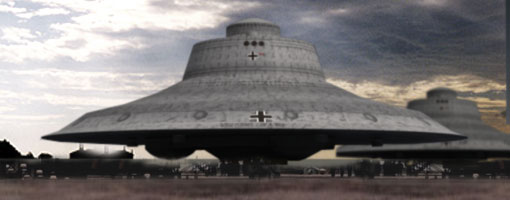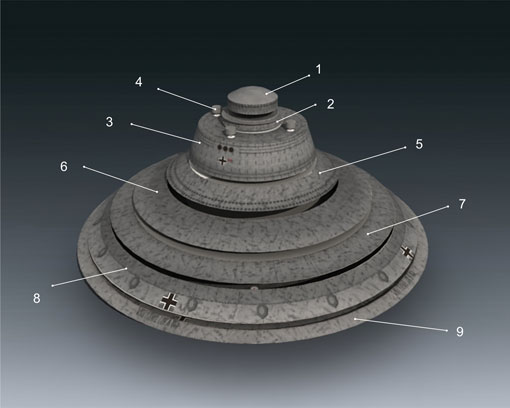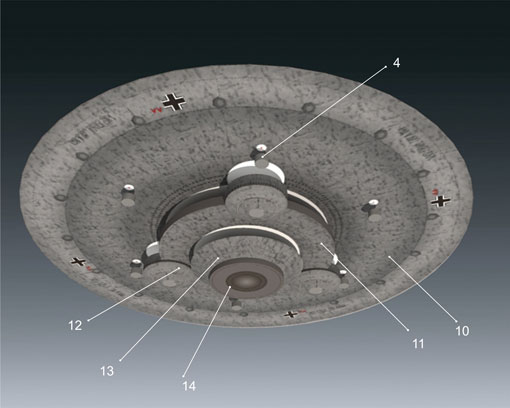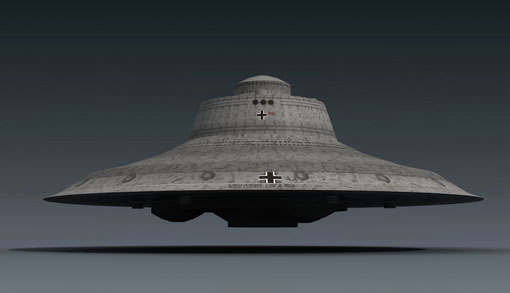
The existence of such a device is disputed by both physicists and historians and is widely regarded as a myth and a sympthom of the Nazi escapism in post WWII Germany and Austria. According to this Nazi mythology, the SS E-IV (Entwicklungsstelle 4) which was a development unit of the SS occult “Order of the Black Sun” was tasked with researching alternative energies to make the Third Reich independent of scarce fuel oil for war production. Their work included developing alternative energies and fuels.
This group supposedly developed by 1939 a revolutionary electro-magnetic-gravitic engine which improved Hans Coler’s free energy machine into an energy Konverter coupled to a Van De Graaf band generator and Marconi vortex dynamo (a spherical tank of mercury) to create powerful rotating electromagnetic fields that affected gravity and reduced mass. It was designated the Thule Triebwerk (Thrustwork, a.ka. Tachyonator-7 drive) and was to be installed into a Thule designed disc. [Wikipedia]

According to legend, the Haunebu I first flew in 1939 and both prototypes made 52 test flights. In 1942, it is claimed, the enlarged Haunebu II of 26 meters diameter was ready for flight testing. This disc allegedly had a crew of nine and could also achieve supersonic flight of 6,000 to 21,000 km/h with a flight endurance of 55 hours. Both it and the further developed 32 meter diameter Haunebu II Do-Stra purportedly had heat shielding of two hulls of Victalen. The craft were supposedly constructed and tested between 1943-44. It is further claimed that the craft made 106 test flights.

Haunebu IV
* Heavily Armed Flight Gyro
* Diameter: 120 m
* Project only projected for 1946

By 1944, the perfected war model, the Haunebu II Do-Stra (Dornier STRAtospharen Flugzeug/Stratospheric Aircraft) was tested. Two prototypes were built. These massive machines, several stories tall, were crewed by 20 men. They were also capable of hypersonic speed beyond 21,000 km/h. The SS had intended to produce the machines with tenders for both Junkers and Dornier but in late 1944/early 1945 Dornier was chosen. The close of the war, however, prevented Dornier from building any production models. Yet larger still was the 71 meter diameter Haunebu III. A lone prototype was constructed before the close of the war. It was crewed by 32 and could achieve speeds of 7,000 to 40,000 km/h. It had a triple Victalen hull. It is said to have had a flight endurance of 7 to 8 weeks. The craft made 19 test flights. This craft was to be used for evacuation work for Thule and Vril in March 1945.
Further plans for a 120 meter diameter Haunebu IV were in the works but no such craft is known to have been constructed before the end of the war.
